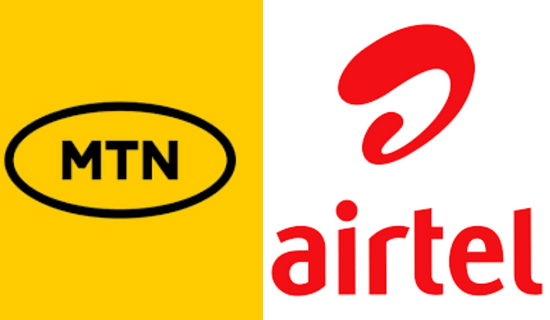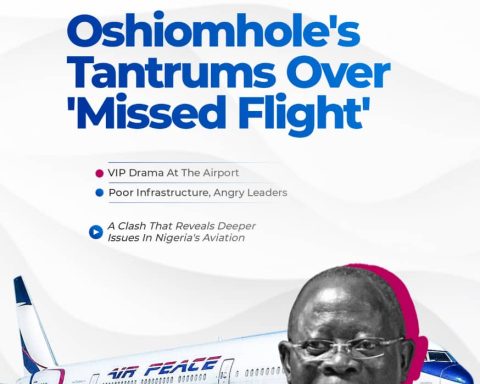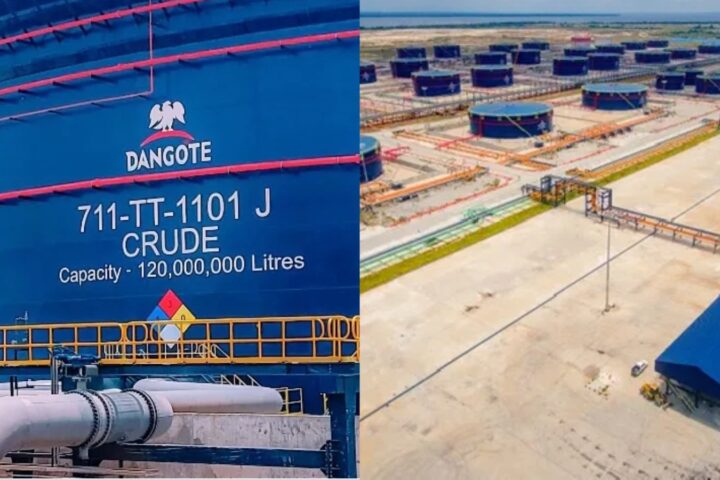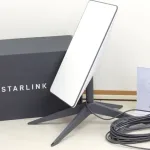Elon Musk’s Starlink will, no doubt, disrupt internet technology currently binding Nigeria’s Internet subscribers, which latest data (November 2022) from the Nigerian Communications Commission (NCC) put at 152.8 million.
Musk’s Internet tech disruption – as described by industry observers – has jolted the industry where existing service providers – Mobile Network Operators (MNOs) and internet service providers (ISPs) – are now reassessing and retooling their operational modules.
Join our WhatsApp ChannelMusk’s Starlink claims it will deploy Satellite to provide high speed internet of up to 500 megabytes per second (mbps) to augment broadband growth that currently stands at 46.2%.
Communications & Digital Economy Minister, Dr.Isa Pantami, had announced in early December that Starlink assured him it would begin operations before the end of that month. This was after Musk got the NCC licence in 2022. It, however, remains unclear if services are up and running today (January 11, 2023).
Overall, Starlink will instigate major disruption in Nigeria’s telecommunications sector having launched over 2,000 satellites in January 2022, with 1,500 operating in low earth orbit.
Prime Business Africa reports that other operators are panicky as some Nigerians and corporate organizations have begun to pre-order routers in anticipation of Musk’s fast speed internet connectivity.
In trying to rejig their operations, local operators are studying how the billionaire’s internet service plans to disrupt the industry, especially since satellite internet can be accessed in rural areas where competition is less likely.
Reports put Starlink’s hardware cost at some $600 – approximately N438,000 in Nigeria. The company has also stated that its subscribers would pay $43 about N31,390 in monthly subscription cost.
PBA considers Starlink’s new tier 1 internet service – which actually offers higher performance of between 150 and 500Mbps with about 20 to 40 millisecond of latency – as being quite pricy.
Starlink targets about 12,000 satellites to be deployed worldwide, with a possible later extension to 42,000 to underscore the massive disruption that is bound to happen in the market and why existing operators must either rework their engagement of the market or get off to die arguing viability of satellite internet services.
SpaceX announced it has reached more than one million subscribers as at December 2022, and with its presence in large markets like Nigeria, the potential to even-out its operating cost faster to gain traction with profit is higher.
Starlink is a satellite internet cluster operated by SpaceX providing satellite Internet access coverage to 45 countries. Since 2019 that SpaceX started launching Starlink satellites, it has successfully launched and maintained over 3,300 mass-produced small satellites in low earth orbit (LEO), which communicate with designated ground transceivers.
Analysts quote Star-link as saying it will take your money and give you speed adding it will take your money and give you speed and stability than ever experienced.
One analyst boasts that “Starlink’s delivery and credential elsewhere in over 40 countries may be sufficient for customers in Nigeria to dump their existing providers for the new satellite bride. I fear for GSM operators even in spite of the yet to be fully explored 4G and the new 5G offerings.” A journalist, who has knowledge of Starlink operations, said “the company could do to GSM operators what they did to CDMA operators over a decade ago to end the reign of the likes of Intercellular and Starcomms.”
Elon Musk’s Starlink is coming to the market at a higher price but with better promise of first rate service that could alter the scale not only in major urban centres like Lagos, Abuja and Port Harcourt but also in rural communities with major institutions where internet from existing service providers have remained costly and unreliable.
In Lagos, an average Small Medium Enterprise (SME) pays some $25 to $50 as entry fee for terminal to sign up to a provider’s service and pays between $25 to $40 for monthly subscription that often comes with ‘managed frustration’ owing to frequent downtimes and lower than paid-for bandwidth speed.
There are no fewer than 18 internet service providers licensed by the NCC and run their services on various technology platforms.
There are 152,320,351 subscribers by Mobile Network Operators (MNOS) including MTN,Globacom,Airtel and ,9Moble,
Fixed wired networks have 15,572 subscribers.The operators in this segment include IPNX,VGC Communications(MTN) and,21st Century.
Internet Service Providers for wired and wireless segment have 204,810 subscribers.Operators include Spectranet and Smile Communications.
Voice over Internet Protocol (VoIP) operators have 350,737 subscribers.The operators are in various categories.Although,they occupy a major segment for users,these operators are essentially unclassified.They include Ntel and Smile Communications.
The idea is to improve and deepen internet and broadband penetration in Nigeria.
With an understanding of the Nigerian market and especially conscious of the dearth of internet in unconnected areas,Starlink opted for satellite internet clusters and applied for a license from the NCC which was granted to it to operate on May 27,2022 .
The satellite, operated by SpaceX, one of Elon Musk ,s companies aims to deliver a global broadband network, via Low Earth Orbit to provide high-speed internet coverage with capacity to penetrate rural and geographically isolated areas where internet connectivity is hardly available.
Low-earth orbit (LEO) satellites ensure connectivity to the unconnected rural and unconnected areas in order to bridge the digital divide.
But it’s certainly not going to be a tea party for subscribers as the cost of acquisition of the terminals and antenna may be beyond the reach of rural folks and ordinary people who have to grapple with grim realities of food and basic necessities of everyday living in Nigeria.
With a sign on fee of $600 ,it will be herculian for rural dwellers which Starlink targets to sign on its network.Perhaps,the company has other considerations in its marketing profiling.It’s too early to assume as things unfold

















Follow Us